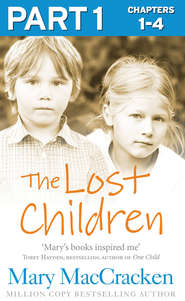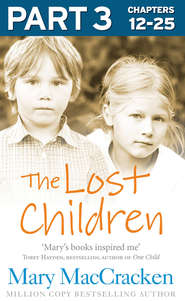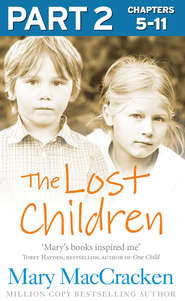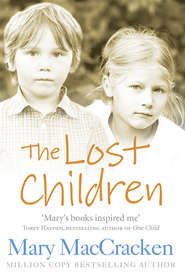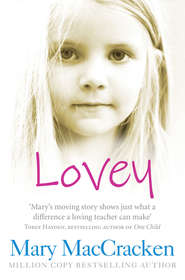По всем вопросам обращайтесь на: info@litportal.ru
(©) 2003-2024.
✖
City Kid
Настройки чтения
Размер шрифта
Высота строк
Поля
Small, rundown houses surrounded by yards consisting of brown dirt and cracked cement lined the rest of the short block.
I parked across from the school and started across the street. A large white dog came off the steps of one of the houses, snarling and hurling himself against the chain-link fence that surrounded the house. I shivered involuntarily and then ran back and locked the car doors before I climbed the steps to School 23, not realizing I was holding my breath until I reached the door.
“Remember,” Jerry Cotter had warned us at the beginning of the training sessions, “the kids you’ll be working with are different than most. We call them ‘socially maladjusted with an overlay of emotional disturbance.’ What we mean is – they are tough, street-wise, and don’t give a damn.”
The warmth inside the school was unexpected. Steam radiators clanked cheerily. Mrs. Karras, the principal, was waiting in the hall. Her handshake was strong, her smile warm, and I liked her immediately.
Jerry arrived next and then within minutes of each other John Hudson and Shirley.
Mrs. Karras poured us mugs of steaming coffee and we carried them across the hall to the music room and sat down around a long folding table that had been set up in the back of the room.
“This will be your room,” Mrs. Karras said cordially. “Fortunately, or unfortunately, we don’t seem to have a music teacher this year, so the room is all yours. I’ve had those file cabinets over there cleaned out for you. I know you said you needed room for some materials.”
Jerry nodded his thanks and then we all listened intently as Mrs. Karras described her school, kindergarten through fifth grade, twenty-eight to thirty children in each room. Many of the teachers were on the far side of fifty and tired of teaching unruly kids, but money was short and jobs hard to come by. Tenure assured these teachers their jobs at School 23, though they longed to be elsewhere.
Mrs. Karras again added her welcome and delight we were there and then said, “Let’s not waste any more time.”
She turned toward Jerry. “I understand you feel it’s best for each tutor to begin working with just one child at first and then gradually take on two more. Right?”
Jerry nodded, and Mrs. Karras continued. “Here’s a list of the youngsters we’ve selected for the program. They’ve been given an intelligence test by the district psychologist. The tests are in the file in my office. Just ask the secretary for the key, their records are open to you. That’s been made clear to their families. You do understand that in ninety percent of the cases, family means a mother and, of course, other brothers and sisters. Almost all of the kids live in the low-income project, and the reason they live there is that there’s no father around to provide adequate income.
“Norm Foster called and asked me to pick three youngsters for you to start with. I don’t know if it’s fair to you, but I picked the three worst. Seemed to me they needed help the most. Of course, it’s up to you to decide who gets who.
“So here are my three candidates. Vernon Schofield, Lucas Brauer, and Milton Green. Vernon’s in fifth grade, Mrs. Jacobson’s class – eleven years old. He’s black, disruptive, been in several knife fights, picked up by the police for shoplifting. Has a younger brother who’s on the list as well, but Anthony isn’t as bad yet.
“Lucas Brauer’s in second grade. German background. Luke’s hard core. Nobody gets through to him. He’s got a list of arrests as long as your arm. Been picked up twenty-four times. He’s set over a dozen major fires, stolen over fifty dollars’ worth of goods from the stores on Main Street. He’s got a hundred and two average IQ, but he’s a truant and even when he does come to school he doesn’t do any work. Just sits at his desk drawing pictures. Actually, he’s one of the lucky ones that made it off the waiting list into the clinic last year. They worked with him for six months and then discontinued, said they just couldn’t get through to him.
“And then there’s Milt Green, black, one of eight kids. He’s in third grade, quiet, except he cries all the time and then climbs on the desk and swims like a fish.”
“I’d like him,” Shirley said.
“And if you don’t mind, Mary, I’d like Vernon Schofield,” said John Hudson. “I think I’d do better with a fifth grader.”
If I had been asked, I would probably have picked Milt. It took a certain amount of something to swim like a fish on a desk in a third-grade classroom, but it didn’t really matter. I could never tell anything anyway until I saw the child.
“Fine. I’ll work with Luke.”
Jerry glanced at his watch. “Suppose I take each of you down to the classrooms. Let’s see, Vernon is in Mrs. Jacobson’s class, you say? That’s on the second floor, isn’t it?”
“Yes,” Mrs. Karras responded. “And Luke is in Miss Eckhardt’s class and Milt in Miss Fuller’s, both just down the hall. I’ll show you.”
Miss Eckhardt’s class was first, a jumble of confusion and noise that was instantly quiet when Mrs. Karras walked in.
“Miss Eckhardt, would you please go out to the hall for a moment? I’ll take the class. All right, class. Get out pencil and paper and copy these five words that I dictate.
“Hen. The hen laid an egg. Hen.”
A boy in the third row laughed out loud.
“I’d like to see you in my office at three o’clock, Jimmy,” Mrs. Karras said. The room was absolutely silent as Mrs. Karras said, “Hen. Do you have that? All right. Your second word is ran. The dog ran after the ball. Ran.” One thing was obvious. You didn’t fool around with Mrs. Karras.
Miss Eckhardt walked through the room, which was now absolutely silent.
In the hall, Jerry held out his hand. “Lisa, do you remember me? Jerry Cotter from the Mental Health Clinic. We met at Bernie’s a couple of months ago.”
“Of course, Jerry. I’m glad to see you.” Lisa Eckhardt’s voice was warm and deep dimples appeared by the corners of her mouth when she smiled. Her brown hair was cut short and it curled in disarray around her pretty face.
Jerry introduced me as the tutor for Luke Brauer and Lisa immediately invited me into her classroom. Jerry pressed a data sheet and stopwatch into my hand. “Good luck.”
Lisa and I went back together, and it was then that she pointed Luke out to me. He was just a little kid, I thought once again, as I watched him from my seat on the radiator.
As Lisa took over from Mrs. Karras, she said, “Class, we’re lucky to have a visitor today. Mary MacCracken is here.”
The kids paid no attention. A boy in the back wadded the paper he’d been writing on into a ball and, as soon as Mrs. Karras closed the door, threw it at the girl across the aisle. She yelled and the others immediately joined the fracas.
Except Luke. He turned and looked at me as though from a million miles away, and then turned back to his desk. It was as though he looked but didn’t see me, any more than he heard the shouts and yells around him.
At his desk, small and alone, Luke drew something on a paper. I put the stopwatch and data sheet in my pocket and moved to a windowsill near his desk.
What was he drawing? Horses? I couldn’t quite tell.
“The first two rows go to the board.”
Eleven bodies crowded along the blackboard at the side of the room, grabbing chalk from one another.
“Luke,” Lisa said, “aren’t you in the first row? Go to the board.”
Reluctantly, Luke stuffed his picture in his desk and walked to the blackboard.
By the time he arrived, there was no chalk left and almost no space. He wedged himself in between two other boys, looked up and down the chalk rail and then, seeing no chalk, just stood silently.
“All right, now,” Lisa said. “I’ll call out a problem for each of you. You write it on the board, figure it out, and then we’ll check it. John, nine plus five. Ed, seven plus six. Luke, eight plus six.”
Luke had no chalk. He could easily have asked to borrow some, or told Lisa. He did neither. He just stood, doing nothing, and then returned to his seat.
“Luke,” Lisa called sharply. “Where are you going? I told you to write your problem on the board. Eight plus six. Go on now.”
But Luke’s head never turned. He hunched down in his seat, turning his picture over and over.
A boy at the board hit his neighbor with an eraser.
“John! Stop that! Now read your answer to the class and see if they agree.” As Lisa talked she went toward Luke, then stood in front of his desk. “What’s the trouble, Luke? Don’t you feel well?”
Luke shrugged without looking up. A boy in the back row yelled, “John’s hittin’ Ed again. Lookit him, Miss Eckhardt.”
“John, get back to your seat, since you can’t behave at the board.”
As soon as Lisa turned away, Luke pulled out his picture and spread it on the desk, his head bent down so that it almost touched the paper.






